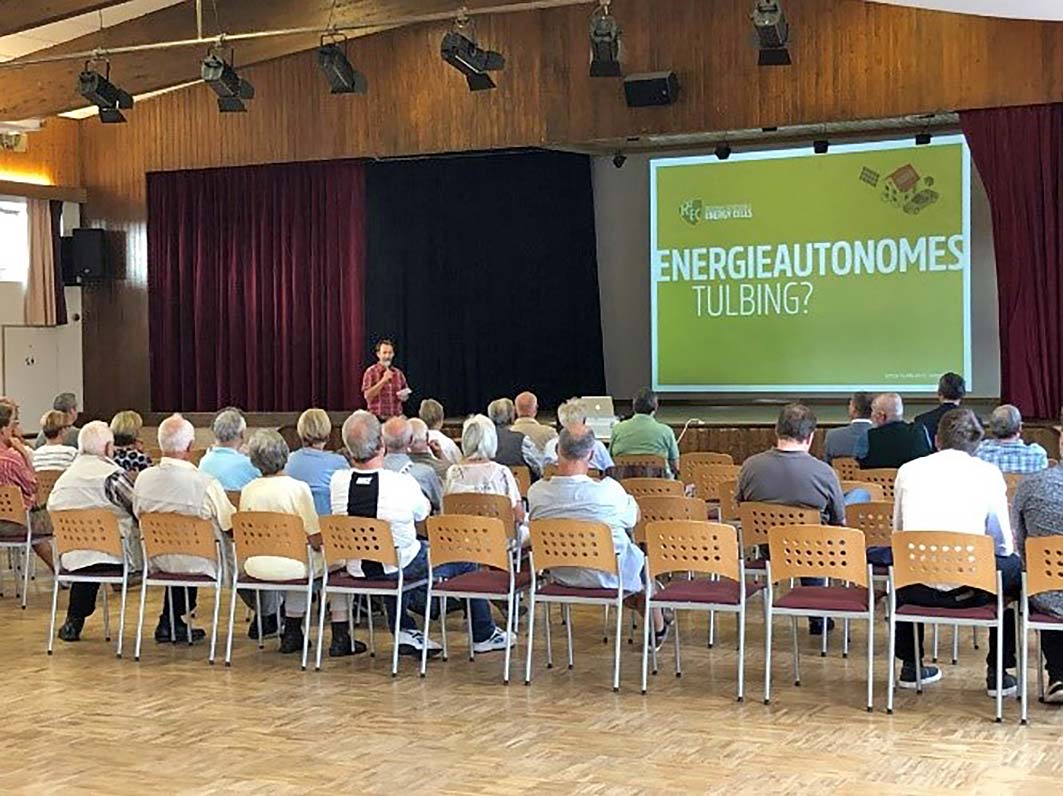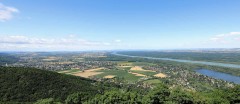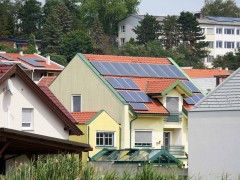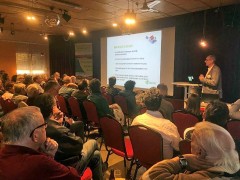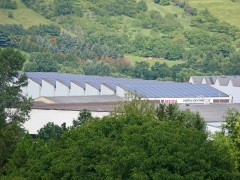A highly practical system for regional grids that combines and optimises the generation, storage and consumption of power.
As part of the transnational research project R2EC, researchers from Austria, Norway and Belgium1 are developing a scalable system of decentralised, interactive energy cells that use a high proportion of locally generated renewable energy. This involves simulating decentralised energy cells based on renewable energy sources and testing relevant technologies. The Austrian consortium is looking at ways to get users involved (co-creation workshops, surveys, etc.) as well as logging real data (measured load profiles) in selected testbeds.
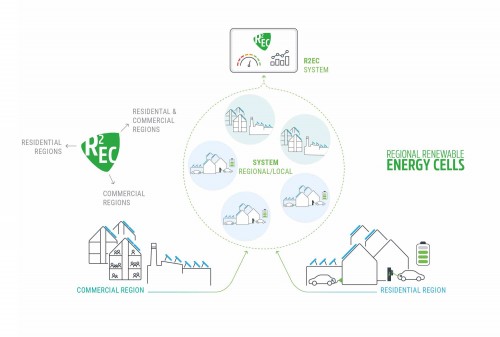
Model regions for 100% renewable energy
The project aims to increase the percentage of renewable energy in local energy communities. Specifically, each region is to be supplied autonomously with locally available renewable energy and will ideally also make a contribution towards covering the consumption of other regions. In Austria, three model energy regions have been chosen in the district of Tulln and its surrounding areas in order to collect real consumption data from households, commercial properties, and municipal buildings and consumers and study how regional energy cells are helping to make the energy transition a success.
The testbeds being observed are mainly using infrastructure components from smart meters. Combined with the findings from the accompanying socio-scientific research being undertaken, the real load profiles recorded in this process enable the energy cells to be replicated and optimised at simulation level and at laboratory scale. To achieve the goal of “100% renewable energy”, more use has to be made of existing areas of flexibility, and new opportunities for integrating a high percentage of renewable energy need to be created with the help of storage systems. The plan is to maximise the use of renewable energy at local and regional level by having production, storage and consumption interact in a coordinated way with smart control. As well as energy-specific optimisation measures, economic and ecological aspects as well as the perspective of the users themselves will also be factored in.
Active participation in the energy market
Coming together to form energy communities brings many advantages for everyone involved. For one thing, sharing the use of renewable energy resources that are available locally makes stakeholders more autonomous. Existing areas of flexibility can be exploited, making systems and plants more cost-effective and boosting grid stability. New opportunities presented by lower grid charges in a renewable energy community and improved underlying conditions (e.g. direct trading within the community, joint investments, promoting energy autonomy) are currently emerging, with some already in place at regional level.
A comprehensive process to integrate all the participants into the selected testbeds is being implemented as part of the project. First of all, local stakeholders were identified that were to provide long-term cooperation in co-creation processes. Workshops to provide information and present the project’s goals as well as initial surveys have already been conducted to gauge the local mood and people’s willingness to get involved. In the next step, the experience gained with the energy monitoring system being deployed and the related changes in energy behaviour in the three project countries will be documented and presented as a country-by-country comparison.
greenenergylab.at/projects/r2ec-regional-erneuerbare-energiezellen/
1 Project partners: University of Applied Sciences Technikum Wien (project management), KEM / WYNERGY e.U., EffiCent Energieeffizienz Dienstleistungen GmbH, 4ward Energy Research GmbH, EVN AG, TPPV Austrian Photovoltaic Technology Platform, NORCE Norwegian Research Centre AS, Z Energi AS, TRIPOD HOUSE AS, Becquerel Institute (Icares Consulting SPRL), GreenWatch S.A.
The project is being implemented as part of the ERA-Net SES 2018 Joint Call RegSys in the EU’s Horizon 2020 research and innovation programme (www.eranet-smartenergysystems.eu).
www.eranet-smartenergysystems.eu
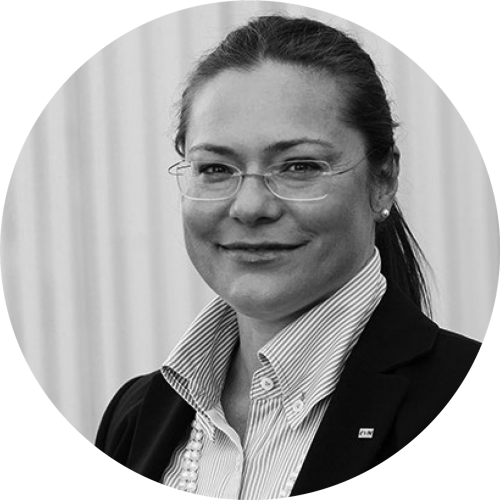 „New technologies and business models? But what if nobody wants to use them? A successful energy transition largely hinges on whether people are willing to get on board. Only if we succeed in striking a balance between the technology, the business model and the needs of users and stakeholders we will produce strong innovations. And this is why EVN is part of the Green Energy Lab, where strong partners are working towards a sustainable energy future.“
„New technologies and business models? But what if nobody wants to use them? A successful energy transition largely hinges on whether people are willing to get on board. Only if we succeed in striking a balance between the technology, the business model and the needs of users and stakeholders we will produce strong innovations. And this is why EVN is part of the Green Energy Lab, where strong partners are working towards a sustainable energy future.“Andrea Edelmann
Head of Innovation, Sustainability and Environmental Protection at EVN,
Deputy Chairwoman of the Executive Board of the Green Energy Lab association
